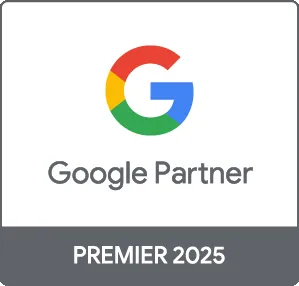In the competitive landscape of online advertising, utilizing automation in Google Ads is essential for optimizing campaigns and driving greater returns on investment (ROI). This post explores effective automation strategies that can help businesses streamline their advertising efforts, reduce manual work, and ultimately improve performance. From automated bidding to responsive ads, we’ll cover various techniques to enhance your Google Ads campaigns.
Why Automate Google Ads?
Automation in Google Ads allows businesses to focus on strategic decision-making rather than routine tasks. Benefits include:
- Efficiency: Automation reduces the time spent on managing campaigns, allowing marketers to concentrate on analysis and strategy.
- Increased Performance: Automated processes can react to real-time data, optimizing bids and ad placements to maximize visibility and conversions.
- Cost-Effectiveness: By optimizing campaigns through automation, businesses can lower costs and enhance ROI.
1. Automated Bidding Strategies
Automated bidding strategies adjust bids based on campaign goals and data signals. Options include:
- Target CPA: Sets bids to achieve a specific cost per acquisition.
- Target ROAS: Adjusts bids to maximize return on ad spend.
- Maximize Conversions: Bids are automatically adjusted to obtain the most conversions within budget.
2. Responsive Search Ads
Responsive search ads adapt to user queries by automatically testing different combinations of headlines and descriptions. This means:
- Improved Ad Relevance: By dynamically adjusting copy, these ads are more relevant to what users are searching for.
- Higher Click-Through Rates: Amazon's representation shows that relevant ads yield better engagement rates.
3. Automated Rules
Google Ads enables the setup of automated rules to manage campaigns effectively. You can:
- Schedule pause or activate keywords based on performance metrics.
- Send notifications for budget limits being reached or campaigns underperforming.
- Automatically adjust bids when a campaign exceeds certain performance thresholds.
4. Smart Campaigns
For small businesses, Google’s Smart Campaigns automatically handle bidding, targeting, and ad creation. Key features include:
- User-Friendly: Ideal for those who might lack in-depth knowledge of PPC advertising.
- Automated Insights: Provides valuable performance insights to help refine overall strategies.
5. Utilization of Scripts
Google Ads scripts allow for more specific automation. Custom scripts can be created to:
- Generate reports based on unique KPIs.
- Adjust bids and budgets based on seasonality or trends.
- Manage and optimize large-volume campaigns efficiently.
Conclusion
Implementing Google Ads automation strategies can significantly enhance the performance of your advertising campaigns. By leveraging automated bidding, responsive ads, automated rules, smart campaigns, and scripts, businesses can improve efficiency, optimize for conversions, and ultimately achieve a higher ROI. At Prebo Digital, we understand the intricacies of Google Ads and are here to help you implement these strategies effectively. Contact us today to learn how we can assist you in automating your ads and maximizing your advertising success!





